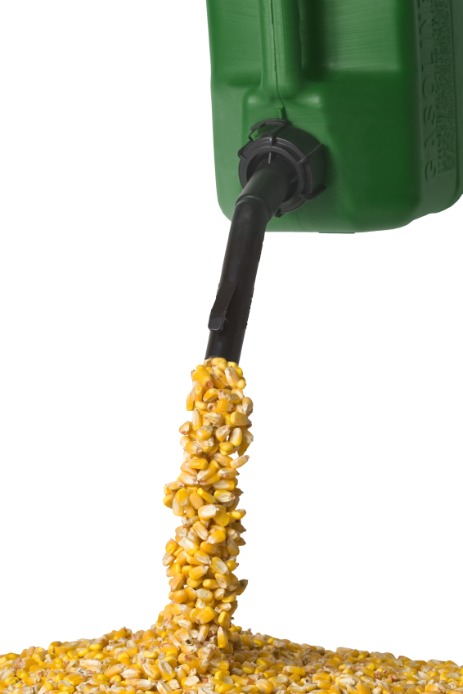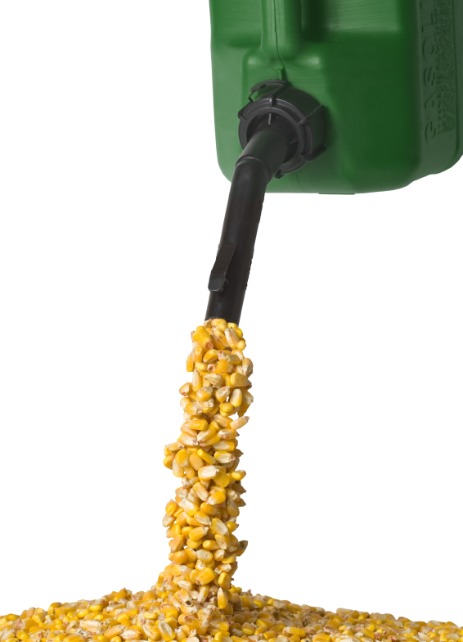 There’s nothing green about wasting corn for ethanol.Grist has been tracking rising food prices for some time — and we’re not the only ones. New York Times columnist and Nobel economist Paul Krugman has been writing on the subject, including some interesting analysis of the interaction of climate risk and food prices. Here’s a key nugget from him regarding soaring wheat prices:
There’s nothing green about wasting corn for ethanol.Grist has been tracking rising food prices for some time — and we’re not the only ones. New York Times columnist and Nobel economist Paul Krugman has been writing on the subject, including some interesting analysis of the interaction of climate risk and food prices. Here’s a key nugget from him regarding soaring wheat prices:
Why is production down? Most of the decline in world wheat production, and about half of the total decline in grain production, has taken place in the former Soviet Union — mainly Russia, Ukraine, and Kazakhstan. And we know what that’s about: an incredible, unprecedented heat wave.
Obligatory disclaimer: no one event can be definitively assigned to climate change, just as you can’t necessarily claim that any one of the fender-benders taking place right now in central New Jersey was caused by the sheet of black ice currently coating our roads. But it sure looks like climate change is a major culprit. And it’s not just the FSU: extreme weather elsewhere, which again is the sort of thing you should expect from climate change, has played a role in bad harvest around the world.
Back to the economics: if you want to know why we’re having a spike in food prices, the data suggest that the key cause is terrible weather leading to bad harvests, especially in the former Soviet Union.
And right on the heels of Russia’s wheat shortage, the USDA has just released a surprisingly frank report documenting that the current U.S. corn stocks are shockingly low, in fact the lowest in 15 years. The reason? I’ll let the Washington Post explain:
The U.S. Agriculture Department’s latest forecast said corn supplies are expected to total 675 million bushels as of late August when this year’s harvest begins. That would be the lowest surplus level since 1996.
The government said supplies have dwindled over the past month because of improving demand, largely from ethanol producers.
Ah, ethanol. How we do love you.
All eyes are now on the 2011 corn harvest. As one analyst said, to avoid a price spike, it needs to be “huge.” And it’s still early, but here’s hoping that the vicious winter weather out in the corn belt doesn’t presage a wild and wacky spring. That could really spell trouble in the global south, where even more upward pressure on grain prices would be devastating.
The good news is that the fuel vs. food debate is for sissies. I know because Monsanto told me.



